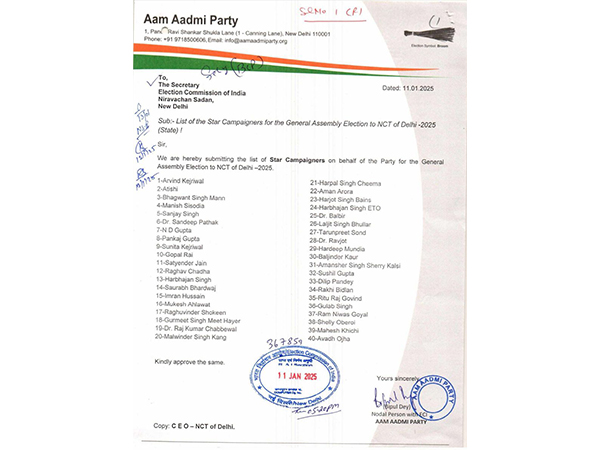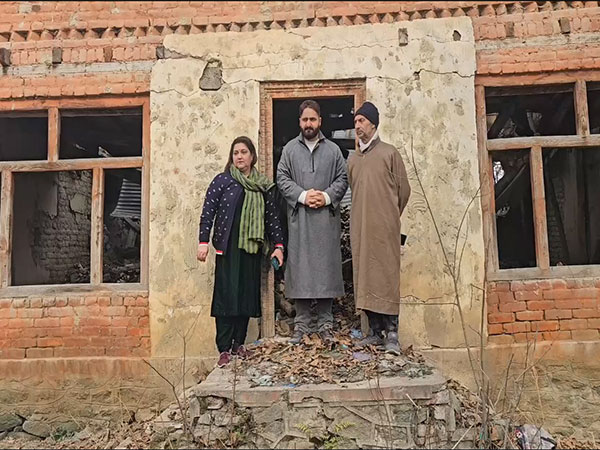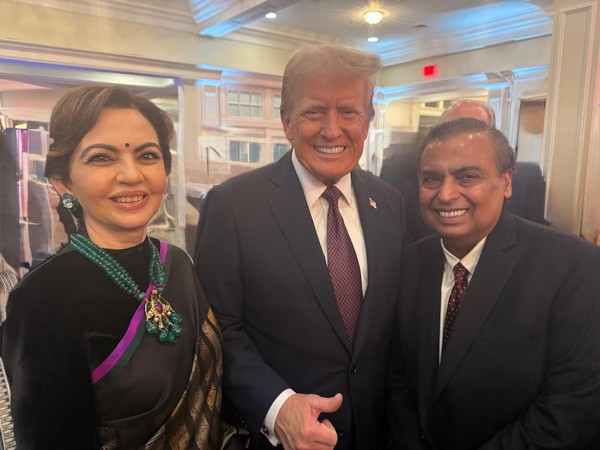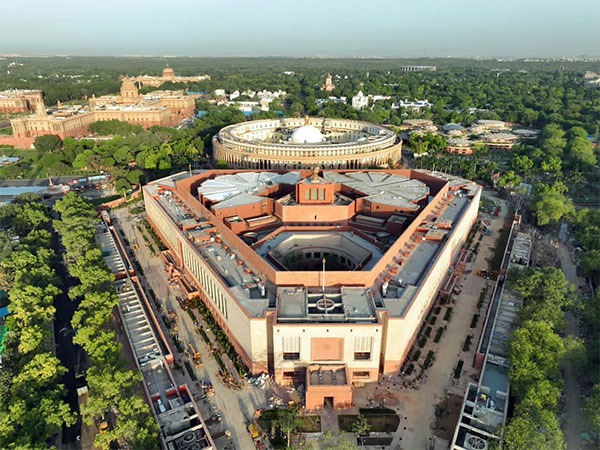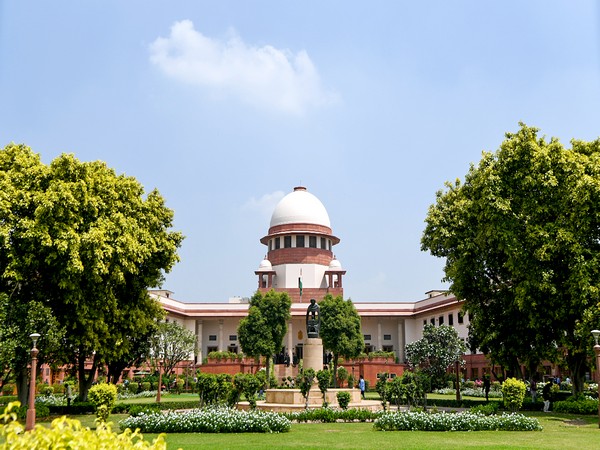
New Delhi, Sept 07 (ANI): A general view of the Supreme Court, in New Delhi on Wednesday. (ANI Photo)
New Delhi [India], November 7 (ANI): The Supreme Court on Monday while upholding 10 per cent EWS reservation amongst the general category in admissions and jobs, opined that it is time to revisit reservation, the affirmative action system followed in India. In a majority judgment by 3:2, a five-judge Constitution bench upheld the validity of the Constitution’s 103rd Amendment Act 2019 saying EWS quota does not violate the basic structure of the Constitution.
Chief Justice of India UU Lalit and S Ravindra Bhat dissented on the majority verdict and struck down the 103rd Amendment Act. Majority bench, Justices Dinesh Maheshwari, Bela Trivedi and JB Pardiwala by their three separate concurring judgments upheld the EWS Amendment. Both Justice Trivedi and Justice Pardiwal appeared suggesting that reservation having roots in centuries old social discrimination has lasted for a long and it requires to be revisited and wither away.
Justice Trivedi said that what was sought to be achieved by reservation within 50 years of the advent of the Constitution has still not been achieved to this day. “However, at the end of seventy-five years of our independence, we need to revisit the system of reservation in the larger interest of the society as a whole, as a step forward towards transformative constitutionalism,” Justice Trivedi said.
Holding the reservation was not an end but a means to secure social and economic justice, Justice Pardiwala said, “Reservation should not be allowed to become a vested interest. Real solution, however, lies in eliminating the causes that have led to the social, educational and economic backwardness of the weaker sections of the community.”
Justice Pardiwala said, “As larger percentages of backward class members attain acceptable standards of education and employment, they should be removed from the backward categories so that the attention can be paid toward those classes which genuinely need help.”
He said idea of Baba Saheb Ambedkar was to bring “social harmony” by introducing reservation for only 10 years. However, Justice Pardiwala said that reservation has continued for past seven decades and “should not continue for an indefinite period of time so as to become a vested interest.” Pronouncing judgment, Justice Maheshwari said that 10 per cent EWS reservation was an affirmative step and reservation exclusively on the grounds of economic backwardness.
Reservation, Justice Maheshwari said is an instrument of affirmative action so as to ensure “all-inclusive march towards goals of egalitarian society” and “It is a means of the inclusion of any class or section so disadvantaged. Reservation on economic basis does not violate the basic structure of the Constitution.”
Justice Bhat pronouncing the dissent verdict ruled against the 103rd Amendment of the Constitution declaring it unconstitutional and void. Finding flaws with the exclusion of SC/ST and the OBC from EWS reservation, Justice Bhat said that the identifier for 10 per cent EWS reservation is based on “deprivation faced by individuals”, therefore, which community the individual belongs to is “irrelevant” as an individual who is a target of the new 10 per cent reservation may be a member of any community or class.
The net effect of the entire exclusionary principle, Justice Bhat said is “Orwellian”, which is that all the poorest are entitled to be considered, regardless of their caste or class, yet only those who belong to forward classes or castes, would be considered, and those from socially disadvantaged classes for SC/STs would be ineligible. The Constitution bench verdict came on a batch of petitions, filed by NGOs Janhit Abhiyan and Youth for Equality, among others, challenging the Amendment on the ground that economic classification cannot be the sole basis for reservation.
During the hearing, lawyers appearing for petitioners submitted that the 103rd Amendment granted reservation to upper castes and this was a violation of the basic structure of the Indian Constitution.
It was contended by the lawyers of the petitioners that the quota on the economic ground alone is impermissible. The petitions were filed in the top court in 2019, challenging the validity of the Constitution’s 103rd Amendment Act 2019.
10pc quota in education, employment, a ray of hope for economically backward upper caste: Karnataka CM
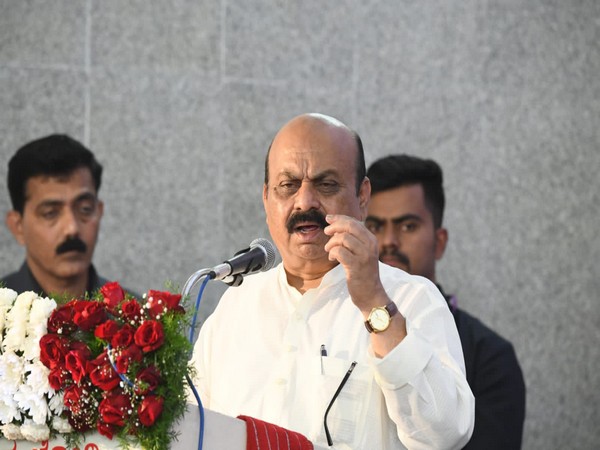
Karnataka Chief Minister Basavaraj Bommai on Monday said the 103rd amendment made to the Constitution by central government to provide 10 per cent reservation in employment and education for the economically backward upper castes is a ray of hope for people.
Talking to reporters in Baindur in Udupi district on Monday, Bommai said this verdict will help the economically backward upper castes which have no reservation, to utilise and develop themselves. This has happened due to the vision of Prime Minister Narendra Modi. “We are happy with the amendment to the Constitution,” he said.
The Chief Minister said as the nation is progressing, the aspirations of youths are also growing. The government has responded to the needs of everyone and helped them to come up in all the fields and to lead an independent life. The apex court has given its verdict after considering all technical and constitutional points. The state government will implement this verdict effectively in the coming days, he said.
On the criticism over 10 minute meditation for school and college students daily, Bommai said whenever good decisions are taken it is bound to have pro and anti feelings. However, the government will take a decision after going through the issue.
Asked about the pest attack for areca nut crop, the Chief Minister said it is being looked into by the University of Agricultural Sciences and a team from the Government of India. A scientific reason for the pest attack will be found out and take remedial steps accordingly. The pesticide prescribed by the agricultural scientists will be used to control the pest attack.
No mention of economic backwardness for reservation in Constitution: Karnataka LoP on SC’s verdict on EWS quota
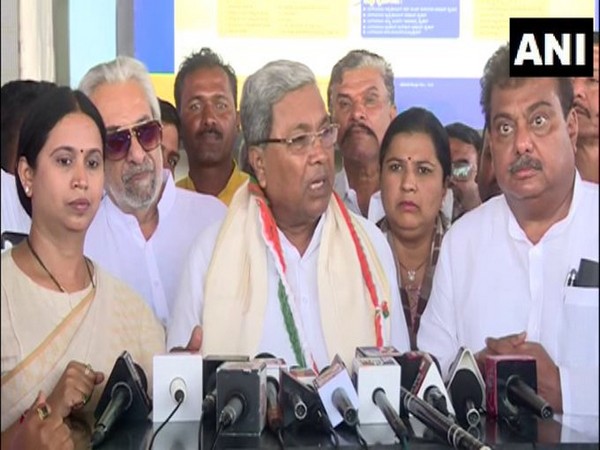
Belagavi (Karnataka) [India], November 8 (ANI): Former chief minister and leader of opposition (LoP) Siddaramaiah remarked on the 3:2 split verdict of the Supreme Court in the Constitutions 103rd Amendment Act 2019 which provides for 10 per cent reservations of the Economically Weaker Section (EWS) in higher education and the issues of public employment.
Addressing the media persons in Belagavi on Monday, LoP Siddaramaiah said: “The Constitution states that reservation should be provided on the grounds of social and educational backwardness. There is no mention of economic backwardness for reservation.” (ANI)






